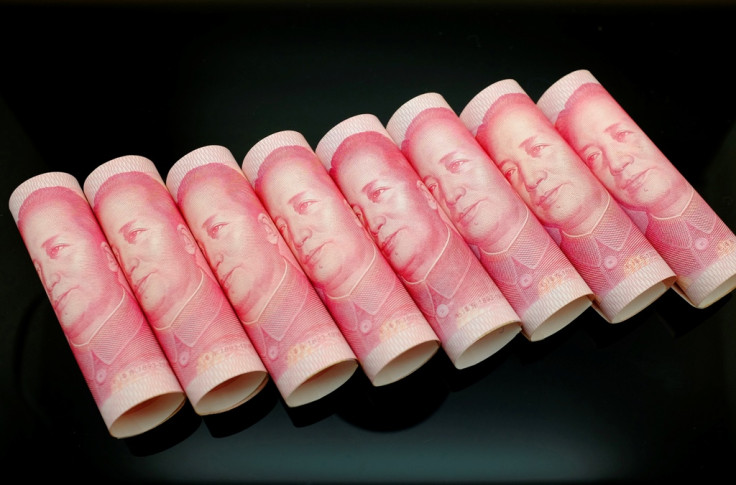Asian stocks climb despite fresh drop in yuan

Asian markets outside mainland China were in positive territory on 13 August despite Beijing devaluing its currency, the yuan, for a third straight day.
The People's Bank of China (PBOC) set its daily fixing rate for the currency 1.1% lower at 6.4010 per US dollar, adding to cuts of 1.6% and 1.9%, respectively, in the preceding two days.
The Shanghai Composite index was down by 0.4% at 3,870.86 points at mid-day.
The PBOC reaffirmed earlier remarks that there was no basis for a sustained depreciation in the value of the yuan and quashed rumours the currency could be devalued by as much as 10% as "groundless", Reuters said.
Earlier, the agency reported it was informed by sources that "powerful voices in the government are pushing for an even deeper devaluation to help China's struggling exporters".
A weaker yuan makes Chinese exports cheaper and more competitive in overseas markets.
Shares rise
Markets across Asia shrugged off the latest depreciation in the Chinese currency as traders were buoyed by a late rally on Wall Street.
The Nikkei benchmark index advanced 1.1% despite official figures showing Japan's core machine orders, a key indicator of future growth in the manufacturing sector, tumbled 7.9% in June from the previous month.
In South Korea, the Kospi was up by 0.5% at 1,985.12 after the country's central bank maintained its key lending rate unchanged at a record low of 1.5% as expected.
"The committee forecasts that the global economy will sustain its modest recovery going forward... but judges that the possibility exists of its being affected by heightened international financial market volatility due to a shift in the US Federal Reserve's monetary policy and to the devaluation of the Chinese yuan," the Bank of Korea said in a statement.
Elsewhere, Australian stocks saw modest gains, with the S&P/ASX 200 benchmark up by 0.2% at 5,393.70 points
Hong Kong's Hang Seng benchmark added 0.5% to 24,034.43.
© Copyright IBTimes 2025. All rights reserved.




















